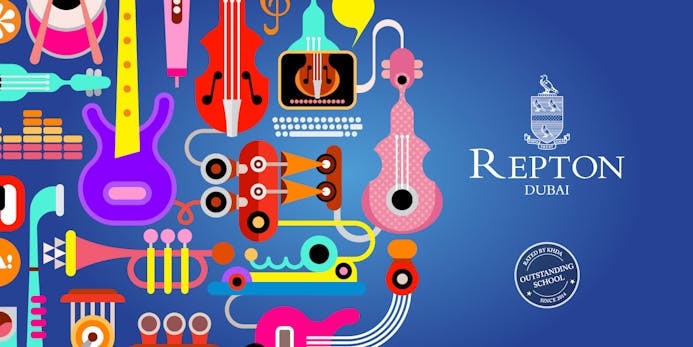Think about it this way. The concept of music is so simple, yet the magnitude of the idea is surreal. In music, we have only 7 music notes. Each note has its own frequency or pitch. Yet experimenting with these notes can create an unlimited number of songs, compositions, and performances that have a lifelong effect.
Our daily life is filled with music. We hear it in elevators, restaurants, malls, cars, schools, concerts, etc. It adds an emotional context to our experiences and affects the way we perceive things around us.
What is so special about music?
It is truly magical to see reactions of young kids when they first hear music or try a new instrument. There is always a lot of excitement and smiles that come with it. The vibration and sound waves that comes out of instruments provide an amazing feeling that is hard to describe but you can certainly feel it.
That’s why children react quickly and start moving when they hear music; they rush to play instruments without any hesitation, exploring the different sounds that they can make.
Benefits of music education
There are many studies that show different benefits to music education and music therapy and many educators and teachers have written about the importance of learning music particularly for children. Some of the benefits of music education include:
- Memory: memorizing music, whether songs or pieces, activates the auditory, visual and motor parts of the brain. That’s why many educators introduce new concepts or subjects through singing or using famous tunes.
- Hand-eye coordination and motor skills: reading music requires attention and concentration. Focus and practice are especially important during simultaneous eye fixation on different notes while applying the correct fingering and technique.
- Communication skills: music – whether through song, composition, or performance – is language that serves as an emotional outlet, which one can express unarticulated feelings.
- Confidence: performing in front of classmates, friends, family and in larger settings boosts students’ self-esteem and confidence.
- Mood & wellbeing: In general music helps to boost mood and has a positive effect on one’s wellbeing. This is especially important with People of Determination and many programs are developed in special music education and music therapy to support that.
How can we experience music in our daily life?
There are many ways to enjoy music with your child:
- Listening to classical music is definitely a good start whether you believe in Mozart’s effect or not. It is a fun activity to discuss what you hear in the music (instruments, mood, story, speed, etc).
- You can also enjoy attending concerts live or virtually.
- It’s always a good idea to take music lessons – whether as part of a group or privately – keeping in mind the importance of choosing the right instruments with which to start the musical journey.
- With modern technology and free Apps like Apple GarageBand, composing music couldn’t be simpler. From simple melodies to orchestral concerto or DJ mixing and the list goes on.
- Compliment and enjoy practice time.
To sum up
Music is a universal language that can be enjoyed in various ways. You can choose whichever way that positively impacts you and your child’s wellbeing and mental health. So let the journey begin!
Author
Nisreen Jardaneh
Head of Music
Repton Abu Dhabi

